- No. 2 Street 623D, Phuoc Long B Ward, Thu Duc City, HCMC, Vietnam
- Admin@CTCinternimex.com
Export Coal Quality Standards: What You Need to Know?
Are you a business operating or intending to enter the coal export market? Understanding and adhering to export coal quality standards is a crucial factor that determines your success and reputation in the international arena. This article will delve into the most important aspects of coal quality standards, equipping you with the necessary knowledge to confidently bring your product to the global market.
Why Are Coal Quality Standards Paramount in Exports?
Coal is not just a common commodity; it's an essential energy source for many industries worldwide. Therefore, importing countries always have very stringent quality requirements to ensure:
- Optimal operational efficiency: Standard-compliant coal helps power plants, steel mills, or other industrial facilities operate efficiently, minimizing breakdowns.
- Operational safety: Poor-quality coal can lead to explosions, equipment damage, and threaten occupational safety.
- Environmental compliance: Many countries have strict regulations on emissions. Coal with high sulfur or ash content will cause severe pollution, leading to penalties and import bans.
- Economic value: High-quality coal commands a better selling price, bringing higher profits to exporters. Conversely, substandard coal may be rejected, devalued, or incur additional processing costs.
- Brand reputation: A coal export business with consistent product quality will build strong trust with partners, opening up many future business opportunities.
Most Important Export Coal Quality Indicators
To accurately assess coal quality, the following key physical and chemical indicators are used:
1. Calorific Value – The "Soul" of Coal
Calorific value is the most important indicator, representing the amount of heat energy a unit of coal can generate when burned completely. This factor primarily determines the economic value of coal. The higher the calorific value, the more energy the coal provides, and the higher its valuation.
Gross Calorific Value (GCV): The total heat generated, including the latent heat of vaporization of water in the combustion products. This is the most common index in international trade.
Net Calorific Value (NCV): The actual usable heat, after deducting the heat required to vaporize water.
2. Moisture Content – Weight That Doesn't Provide Energy
- Moisture content is the amount of water present in coal. High moisture not only reduces the actual calorific value of the coal but also increases transportation costs because you're paying to ship water.
- Total Moisture (TM): Includes both surface water and inherent moisture in the coal. This is an important factor when weighing coal.
- Air Dried Moisture (ADM): The amount of water remaining after the coal has been dried under standard laboratory conditions, used for other chemical analyses.
3. Ash Content – The Unwanted "Residue"
Ash is the uncombustible mineral matter remaining after coal is burned. High ash content is an indicator of poor-quality coal because it:
- Reduces calorific value.
- Increases the amount of waste that needs to be processed, leading to higher costs.
- Can cause abrasion or fouling in combustion equipment, reducing equipment lifespan.
- Demanding markets often require coal with very low ash content.
4. Sulphur Content – An Environmental Concern
Sulphur is a significant environmental pollutant when coal is burned, producing SO2 (Sulfur Dioxide), one of the main causes of acid rain and respiratory problems. Therefore, sulphur content standards are very strict in many importing countries. Low-sulfur coal (also known as "sweet" coal) is always preferred and commands a higher price.
5. Volatile Matter (VM) – Affecting Combustibility
Volatile matter refers to the easily vaporized organic compounds in coal, released as gases when coal is heated. This index affects the ignition properties and burning rate of coal. Coal with high volatile matter is often easier to ignite but can also burn too quickly and inefficiently if not properly controlled.
6. Fixed Carbon (FC) – The Main Energy Source
Fixed carbon is the remaining carbon in coal after moisture, ash, and volatile matter have been removed. This is the primary component that generates heat when coal burns. High fixed carbon content usually correlates with high calorific value, indicating good quality coal.
7. Size Distribution – Optimizing for Equipment
Coal particle size is also an important indicator, especially for coal used in industrial boilers or power plants. Uniform particle size that meets the buyer's requirements will help optimize the combustion process and minimize losses.
Coal Export Quality Inspection Process
To ensure your coal shipment meets international standards, the inspection process typically involves the following steps:
- Coal Sampling: This is an extremely critical step. Samples must be collected according to international standards (e.g., ISO 13909, ASTM D2234) to ensure they are representative of the entire batch. Errors in this step can lead to inaccurate analysis results.
- Sample Preparation: Coal samples are crushed, mixed thoroughly, and divided into smaller portions for various laboratory analyses.
- Laboratory Analysis: Independent and accredited laboratories (e.g., ISO/IEC 17025 certified) will analyze each physical and chemical indicator mentioned above using standard international test methods.
- Issuance of Certificate of Analysis (COA): After completing the analyses, the laboratory will issue a COA. This is the official document confirming the quality of the coal batch, a mandatory document in all international coal transactions.
Useful Advice for Coal Export Businesses
- Understand Your Customers and Target Markets: Each country and even each plant may have specific coal quality requirements. Thoroughly research contracts and industry standards before trading.
- Invest in Technology and Processes: Enhance coal quality right from the mining, sorting, and processing stages. Investing in coal beneficiation and screening technology will help you offer a more competitive product.
- Partner with Reputable Inspection Agencies: Always use the services of independent, experienced, and internationally recognized inspection companies to ensure the objectivity and accuracy of quality inspection results.
- Continuously Update Standards: Environmental regulations and quality standards can change over time. Businesses need to proactively update to adapt promptly.
- Risk Management: Always have a contingency plan for cases where coal does not meet the desired quality.
Understanding and adhering to export coal quality standards is not just a mandatory requirement but also a key to your business building a strong brand and developing sustainably in a competitive international market. Prioritizing quality will lead to long-term success.
Read more:
CTC International Import Export Joint Stock Company (CTC Internimex JSC) is a company specializing in the processing, production, and export of agricultural and forestry products from Vietnam to all over the world.
With nearly 20 years of experience in manufacturing and trading, we are committed to providing you with:
- The best quality products to meet all technical requirements.
- Quality assurance as per your requirements, with third-party inspections by SGS, Vinacontrol, Intertek, etc.
- The best prices.
- Optimized transportation costs and safe cargo through the use of reliable and experienced freight forwarders.
- Diverse shipping methods (EXW, FOB, CNF, CIF, DDP, etc.)
- Various payment methods (TT, L/C, etc.)
👉👉 We update the prices of various agricultural products every Monday.
You can refer to them at this link: Vietnam Agri-Exports: Weekly Price Updates
*** If you need to learn more about any specific product, please contact us right away. We are ready to assist you whenever you need us.
✨Big Promotion From Ctc Internimex Jsc For You 🌏✨
Partner With Ctc Internimex Jsc And Receive Even More Special Offers:
🍀 Free Sample
🍀 We Will Help You Get Import Tax Exemption
🍀 Oem Processing / Custom Design
🍀 Cheap Shipping👉👉 More details here: Big promotion from CTC internimex JSC for you
Contact our team of experts today for assistance with product information, competitive pricing, and logistics solutions for Vietnamese agricultural products.
Contact Information:
- Head office: No. 2 Street 623D, Phuoc Long B Ward, Thu Duc City, HCMC, Vietnam
- Hotline/WhatsApp: (+84) 944 772 339 / (+84) 393 887 377
- Email: Admin@CTCinternimex.com
- Search on Google Maps: Here
Are you a business exploring the coal export market? To bring your coal to the international market, understanding export coal quality standards is a crucial factor. This article will provide an overview of the most important indicators, from calorific value, moisture content, ash content, to sulfur, helping you confidently meet the stringent requirements of foreign partners and build a sustainable reputation.
Chia sẻ:


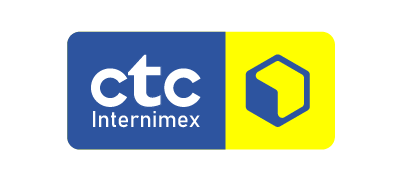

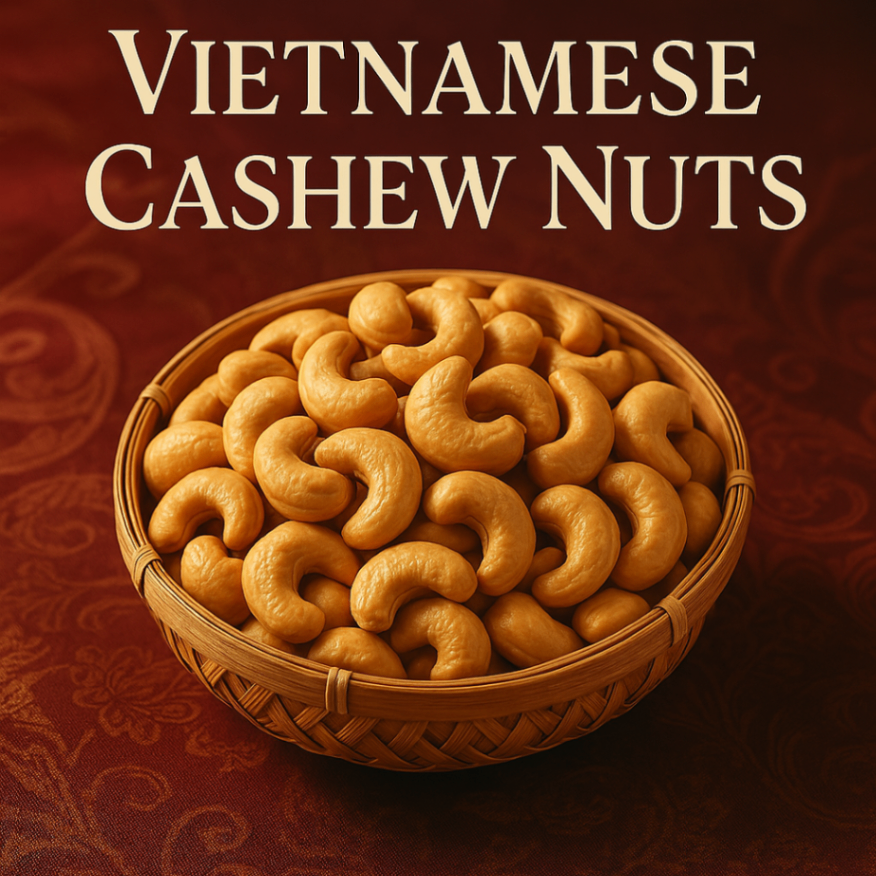

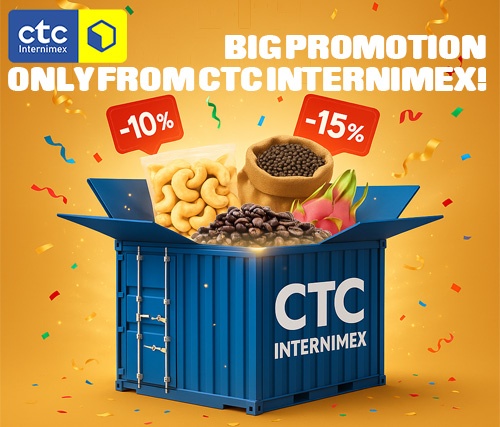
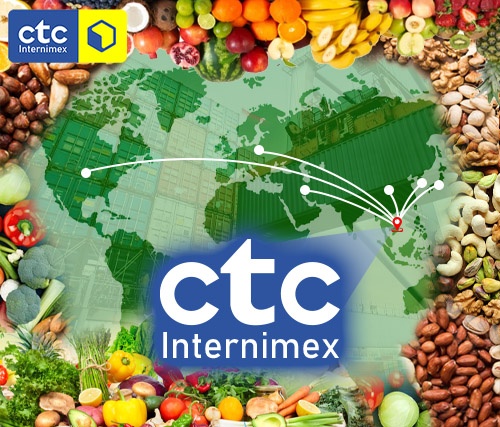
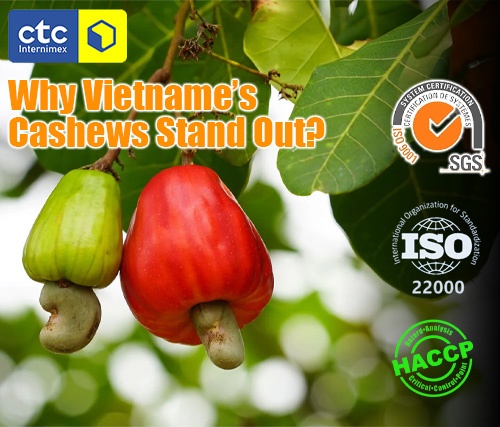




Comment